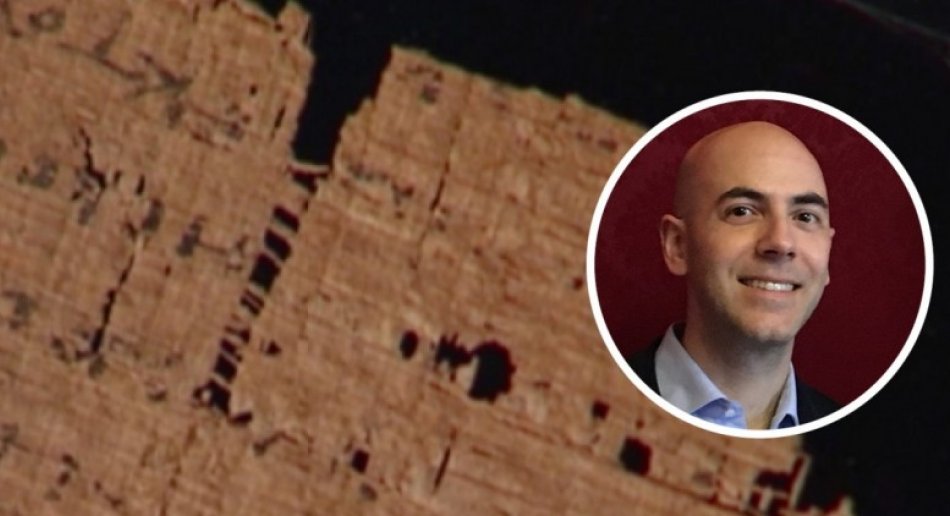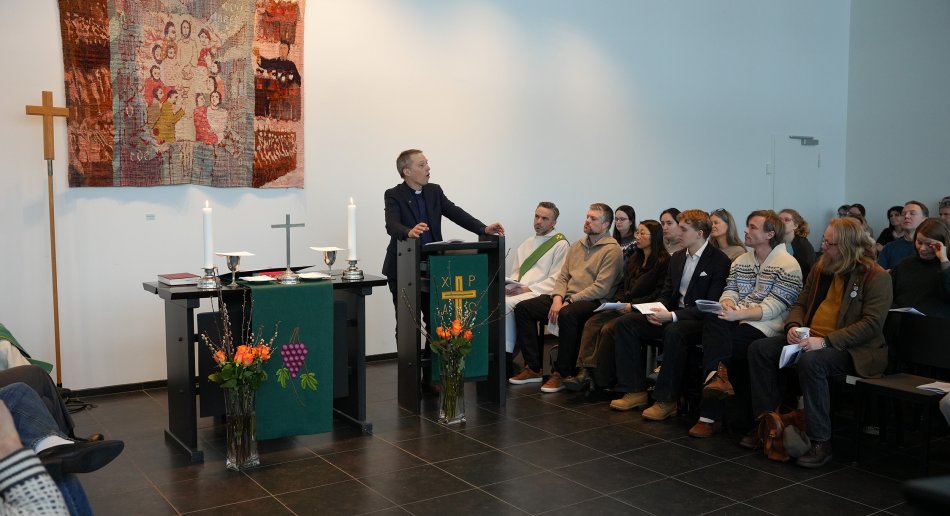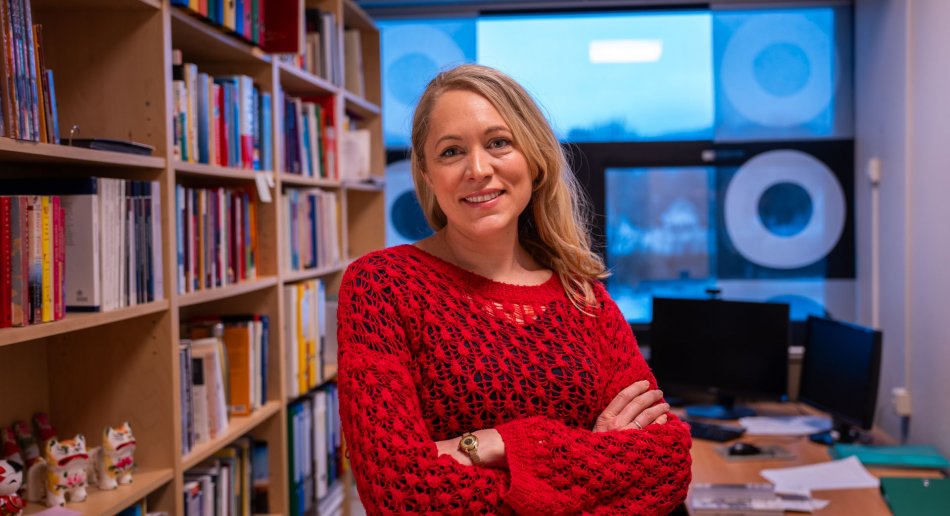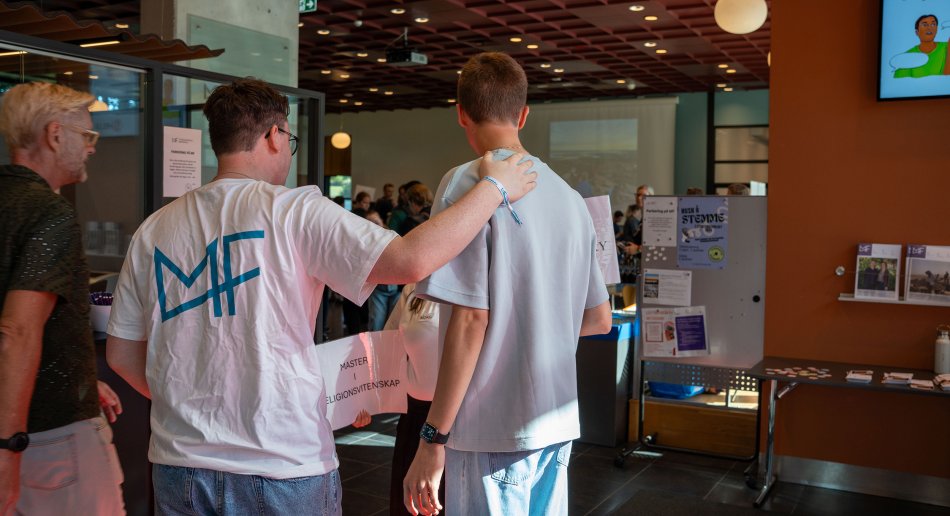
When Manuscripts Lie
– How should we deal with manuscripts and other artefacts that appear on the antiquities market without archaeological provenance, asks professor Brent Nongbri.
Read the book:
God's Library: The Archaeology of the Earliest Christian Manuscripts, Yale University Press, 2018.
This book was the 2019 winner of the DeLong Book History Prize awarded by the Society for the History of Authorship, Reading and Publishing, as well as the Biblical Archaeology Society's prize for best book on a New Testament topic.
Read the blog:
Nongbri’s blog, Variant Readings has been the outlet for most of his research on the modern antiquities trade.
Brent Nongbri is MFs new professor of History of Religions. In recent years his research has come to focus on the current illegal trade of manuscripts and other ancient artefacts.
Nongbri’s last book, God’s Library, was published in August 2018. It was a critical introduction to the earliest surviving Christian manuscripts.
– I tried to consolidate what we can know about these books and understand them as three-dimensional archaeological artefacts, and not just as carriers of texts. Thinking about these books as physical, material objects with histories sometimes meant examining the sites in Egypt where they were excavated by archaeologists. But: Much more often it meant delving into the world of antiquities trafficking in the middle of the 20th century. This is the source of some of our most important surviving early Christian books.
Since God’s Library came out, Nongbri’s research has come to focus more on the current illegal trade of manuscripts and other ancient artefacts.
The Museum of the Bible
For a couple of years, Nongbri has been following the activities of different figures associated with the Museum of the Bible in Washington, D.C. The Museum is a project guided by the Green family, wealthy American evangelical Christians. It has been clear for some time that the Green family’s collection practices involved a good deal of illicit activity.
– What are your findings?
– My research has focused on the family’s purchase of several very early Christian manuscripts that were stolen from the famous collection of Oxyrhynchus papyri at Oxford University. One of the antiquities dealers, from whom the Green family bought many of their manuscripts, also happens to be a professor in Classics at Oxford. This professor has been accused of stealing manuscripts to sell to the Green family.
Read more in The Guardian:
- Oxford professor accused of selling ancient Bible fragments
- A scandal in Oxford: the curious case of the stolen gospel
Illegal antiquities trade
– Why is it important to do research on this?
– Historians rely on ancient artefacts to do much of our research, and many – perhaps most – of these artefacts have some connection to the illegal antiquities trade. Even the texts that we read in modern Bibles are translated from editions produced using ancient manuscripts, many of which have a checkered history in the antiquities market. Archaeological artefacts are most useful to historians when they come from a known provenance – that is to say, when they have been excavated by professional archaeologists who carefully record the context in which they were discovered.
As an example, Nongbri says we would probably interpret a manuscript found in the ruins of a house along with someone’s personal belongings quite differently than if it was found in a trash heap.
– If artefacts are dug up by looters and sold on the antiquities market, their value for historians is greatly diminished because we don’t know anything about the place from which they came or the exact context in which they were found.
Occupied by ethics
Questions of ethics are more and more beginning to occupy the researchers who study ancient Judaism and ancient Christianity. These are fields in which much of the physical evidence is unprovenanced.
– How should we deal with manuscripts and other artefacts that appear on the antiquities market without archaeological provenance? Should we publish research on them and thus raise their monetary value for resale and stimulate further looting of archaeological sites? Or should we refuse to study and publish them and possibly lose historical information? These are very much live debates in the field, says Nongbri.
Far to go
Nongbri says that the wider public is beginning to acknowledge that the commercial trade of cultural heritage items is a problem that needs to be addressed.
– Many of the great libraries and museums of Europe and America formed their collections in a period of colonial exploitation. Librarians, museum curators, and scholars now usually observe better practices than our predecessors. But we still have far to go in finding an ethical and sustainable way to deal with cultural heritage material.
---
Brent Nongbri is also a part of The Lying Pen of Scribes project, focusing on the intersection of the academy and the antiquities market.
Forskning



